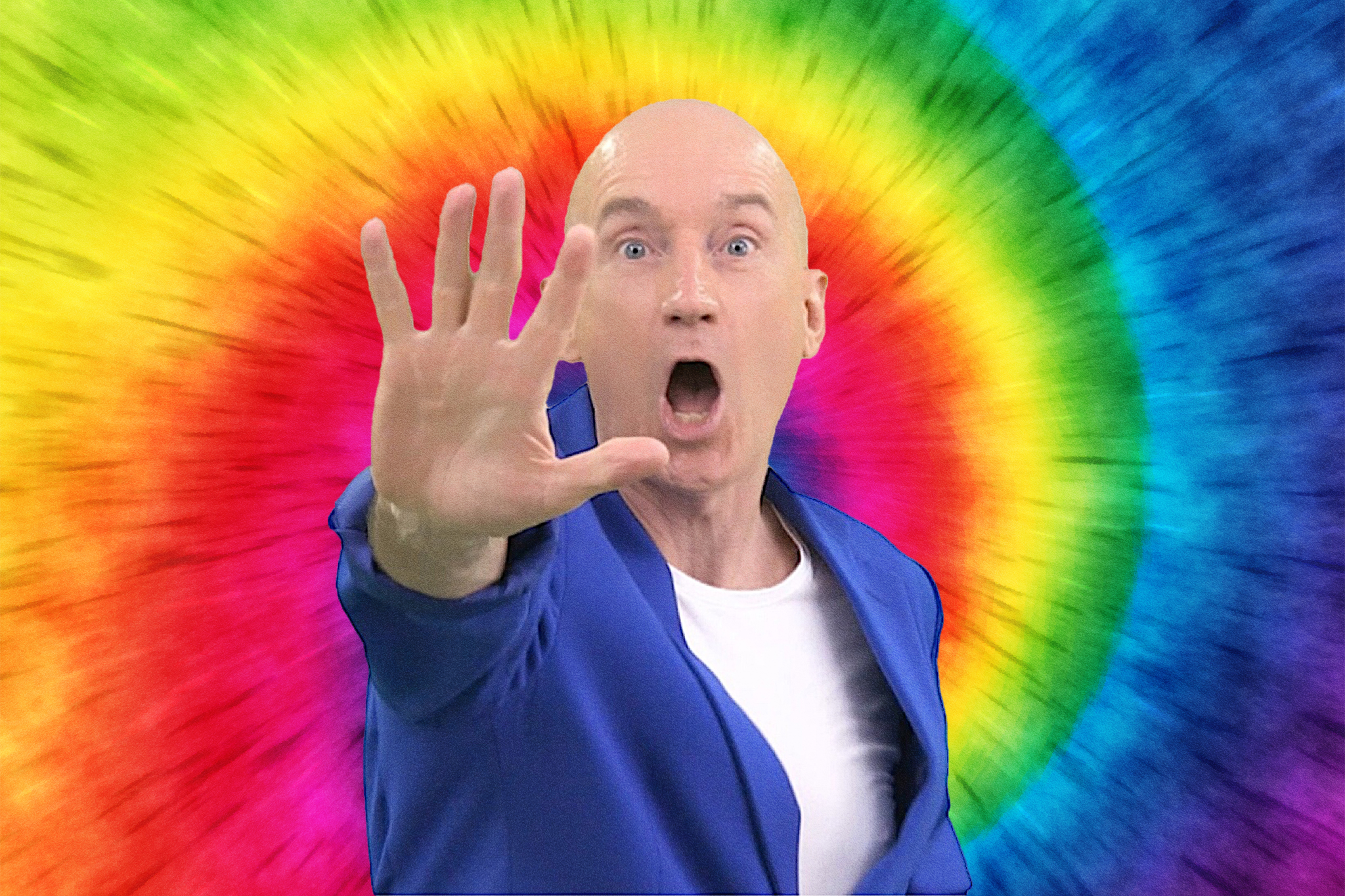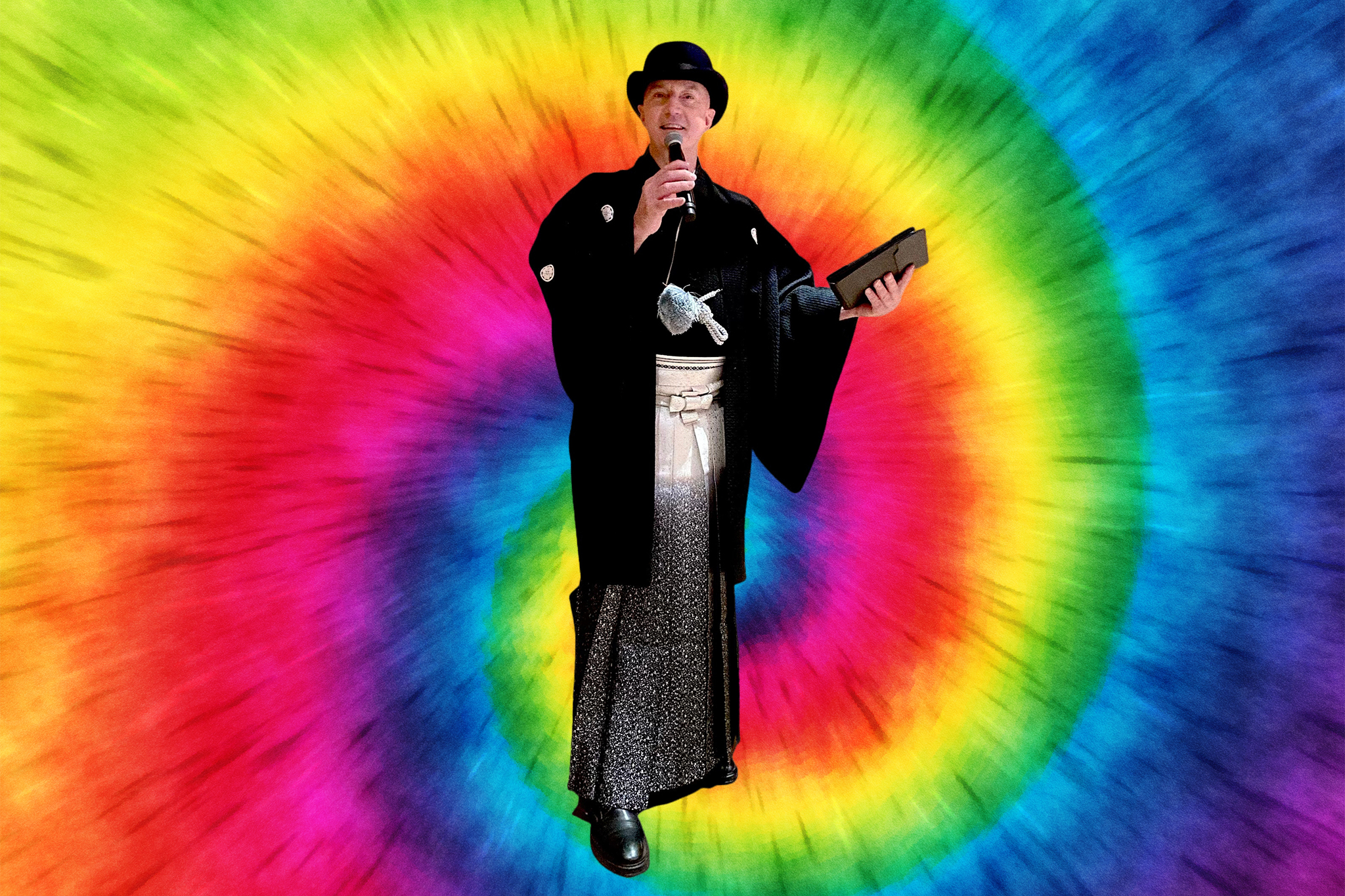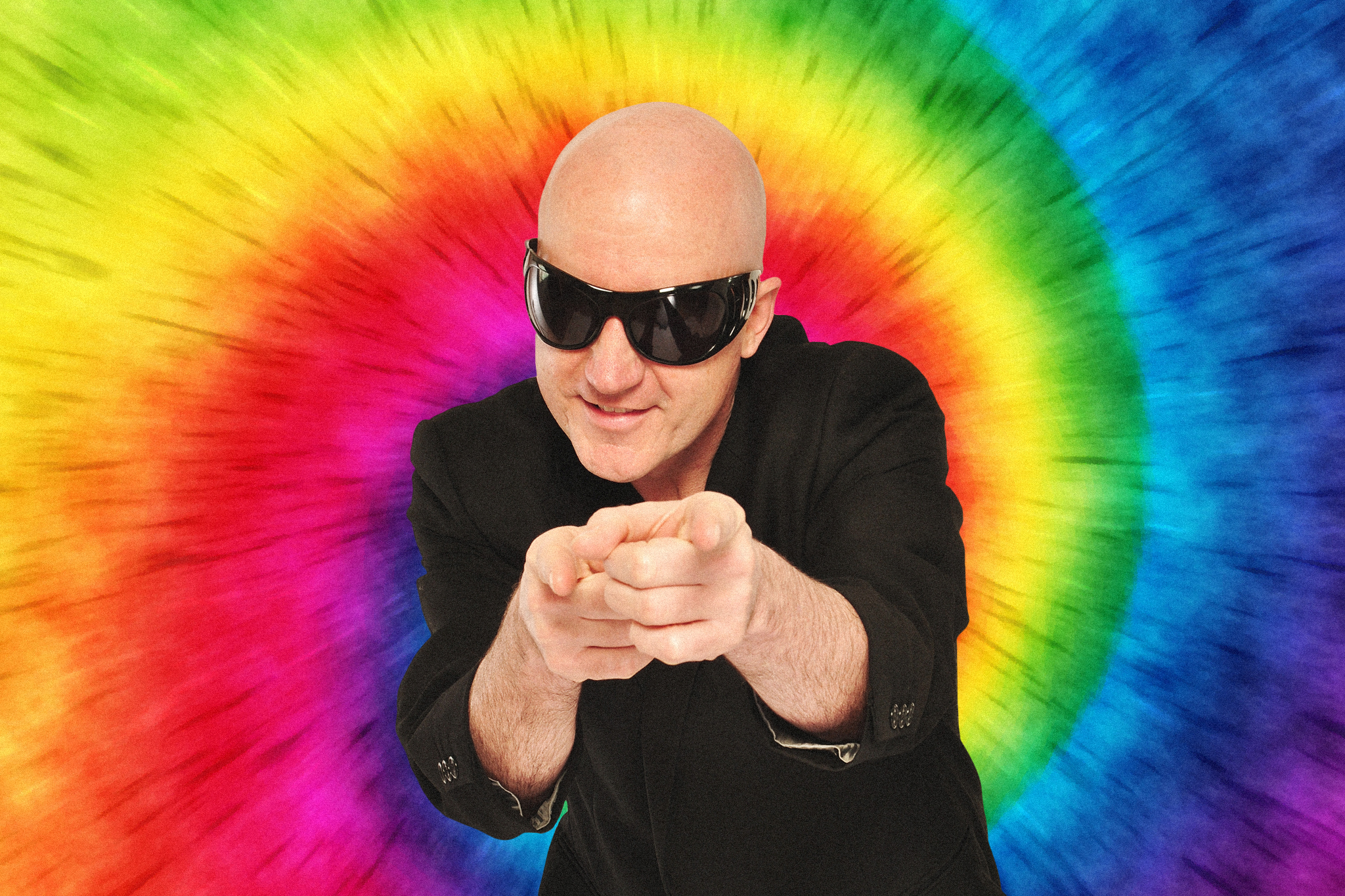I first met StuartO in a bar in Ebisu a few years back. As open as a book, extremely generous and full of amazing stories, he’s been on my list for the 8am Coffee With series since the beginning. He isn’t an easy man to track down and schedule an interview with, though, as he’s one of Japan’s most sought-after voice actors, narrators, MCs and singers. A man of many talents, StuartO (a name that comes from an agent who used it in katakana as a marketing tool) is a fascinating subject and his time in Japan (on and off since 1987) makes for great conversation.
The gregarious Sydney native lives a kaleidoscopic life working with clients including NHK, Nippon Television, CNBC and the Olympics in addition to being a singer for hire and regularly packs out venues including R2 in Roppongi. I sat down with Stuart for an hour or so in Ebisu’s great The Footnik pub (sadly not at 8am and not with coffee) and got to know more about his life and career in Japan, the country he has called home for decades.

Stuart, you’re certainly not a one-trick pony. If you could describe what you do, what would you say?
Well, in three words, I’m a presenter, performer and conductor. I use the word conductor because if I’m doing a live show, they all end up being huge singalongs. When Rick Astley was doing The Smiths songs [at this year’s Glastonbury Festival] that’s what my live gigs are like. You end up conducting the show and the audience.
If I’m doing an MC job, I will be conducting the room. You’re channeling all the energy to where it’s supposed to be going. You control the emotions of the people there and the flow of the evening itself. So, in that way, I’m a conductor.
How about when you worked at the Olympics a few years back? What was that like?
It was out of Makuhari Messe. What happened with the Olympics was that we were ready to go, but because nobody could attend in person, it didn’t happen. But I did end up doing the Paralympics. I had been booked for both. The Paralympics were based in Chiba, and they changed the rules for that. It was framed in a social and educational manner, so they had loads of high school and elementary school kids all there. My role was being the MC for the whole stadium. So, I would stand in the middle of the auditorium right at the beginning of the day and say, “Welcome to the Paralympics” and so on in two languages — English and Japanese and explain what we were doing that day and what the run of the day was.
I had already done the Sydney Olympics in 2000 with NHK earlier in my career. So, the Paralympics felt like it had come full circle.

Were you not nervous about doing such a huge event?
Not really, to be honest. If I’m ever not prepared enough, then I get a bit nervous, but if I prepare (and I always do), then there’s nothing to be frightened of. Sometimes Japanese people like to fiddle with things at the last minute, like a linguistic thing or a turn of phrase that I can’t ad lib on. I’ve been here for about 36 years but, of course, Japanese isn’t my first language.
My friends here say that you’re about the best non-Japanese speaker of Japanese that they know of. Do you still feel the need to improve your language skills?
Yes, of course. Not only with my language ability, but my professional skills as a presenter or vocalist. I’m always learning and I think that I’m a lot better now than 10 or 20 years ago, for example. And it’s funny because people say that once you get to a certain age you can’t learn a language, but that’s a lot of shit. I’ve been lucky because I raise the bar for myself as clients ask me to do better and bigger things for the next job. They think that if he can do that, then he could do this. And do it better.
If you had any advice for anyone that wanted to get involved in the industries that you work in such as voice acting, narration, performing and entertaining — what would you say to them?
It’s not an easy world to get into now because there are so many good professionals doing it. The best thing to do is to get into the lower level jobs first, like saigen dramas (recreations) on TV. If you get in that way, then just look around for other similar work. If you already have a skill set in voice work, then you can hand your stuff to people. They can listen to it and you can grow connections and work that way. And never look down on Japan. Japan isn’t an easy place and there are a lot of great foreign and Japanese performers here who will be in front of you in the pecking order, so you have to take it one step at a time.
Details of StuartO’s upcoming performances are below:
On Air
- NHK World TV “On The Wings” (navigator) on July 26 and 27
- NHK Radio “Living In Japan” (presenter) on July 30
- Nippon TV “Sekai Maru Mie” (introducing videos from overseas), on August 14
Live Shows
- July 28 and August 4, 9pm at What The Dickens in Ebisu
- every Sunday in Roppongi R2 Supper Club 9:30pm/11:00pm/1:00am








